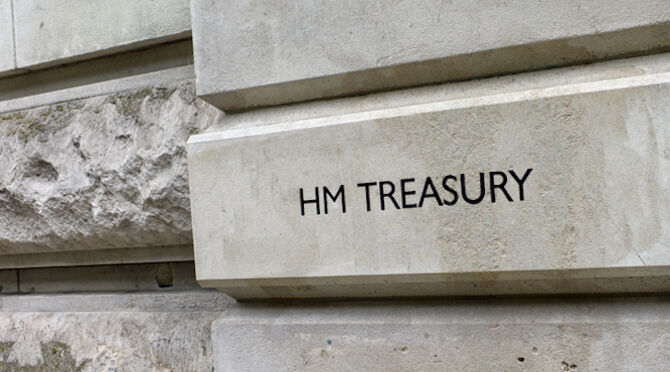Business wary as 'mini-budget' scrapped
Business leaders reacted with grim resignation as the UK's new Chancellor of the Exchequer Jeremy Hunt scrapped virtually all measures proposed in the 'mini-budget' unveiled by his predecessor barely three weeks earlier.

 17 October 2022
17 October 2022Related reading from Relocate Global
- U-turn on tax break for rich cheers business
- Solving the UK’s productivity problem
- Support grows in UK for targeted immigration
A statement for stability?
On Monday, Mr Hunt made an emergency statement in which he went further, putting on hold indefinitely a 1p in the pound cut in the basic rate of income tax, which had been due to come into force in April.He also announced the energy price guarantee for all householders would not last two years as planned, but would now end in April, when there would be a more targeted support programme devised for the worst affected.A proposed cut in dividend tax has also been abolished, along with VAT-free shopping for overseas visitors and a freeze on alcohol duty.The Government has yet to announce if it will go ahead with 'mini-budget' plans to scrap a cap on bankers' bonuses, and to create 38 investment zones across the UK where companies would benefit from lower taxation and planning rules. The only two things that are definitely unaffected are the decisions to cut a planned rise in National Insurance contributions, and a proposal to reduce the duty paid on house sales, although that only applies in England.Business responses to new Chancellor's measures
Kitty Ussher, Chief Economist at the Institute of Directors, said: “It is, of course, right for the Government to focus on restoring stability and confidence – without that growth is impossible."As our members have told us, the number one negative issue for their businesses at the moment is ‘UK economic conditions’. Confidence is also extremely low, which in turn causes businesses to invest less, constraining growth further."Ms Ussher added that employers would be relieved by the decision on National Insurance contributions as it would help reduce supply-side pressures.Dermot O’Leary, Chief Economist at investment bank Goodbody, said the Chancellor's emergency statement should help restore some much-needed market confidence after "an extraordinary fortnight" of volatility."These measures were designed to get ahead of any further market turbulence today and reassert the Government’s credentials for economic competence and fiscal responsibility," he said."They will go some way towards reassuring the markets which already, it seems, have faith in Jeremy Hunt as a safe pair of hands at the Treasury. Already we saw the pound strengthen and stocks rise at the start of today as the markets anticipated further fiscal policy U-turns to make the Government’s sums add up."Neil Carberry, CEO of the Recruitment & Employment Confederation, said that in the wake of the original 'mini-budget', his organisation had highlighted the need for a fiscal plan the markets could believe in.Now, he said, he hoped Mr Hunt's announcements would calm the markets and allow space for the real debate – how to help businesses generate sustainable growth that would keep public services funded and taxes low, without overstretching the public finances.He added: "The most important part of generating growth is the hard work that needs to be done on issues like skills, getting more people into the labour market, and the tax system."There are no quick fixes. As we said last month, it is not enough to tear things down – we need to take time to build."Ahead of any further interventions by the Chancellor, incentivising business to invest in skills and make it easier to recruit and retain staff should be front of mind."Need for clear vision
Shevaun Haviland, Director-General of the British Chambers of Commerce, described the Chancellor’s "buzzword" as stability. But, she added: "What we’ve seen from him is a plan for today and nothing for tomorrow.“Following the economic turmoil of the last few weeks he had to press the reset button. But businesses will be dismayed by the decision that looks set to strip back the energy support for firms from next April. This will be a hammer blow for many who were already worried about how they will survive.“The Government must commit to a full consultation with firms ahead of that cliff-edge to provide some certainty on where any targeted support will go. Energy costs keep business owners awake at night, alongside rising inflation and interest rates."Ms Haviland welcomed the decision to reverse the rise in National Insurance contributions but said that, in itself, it would not be enough.“People run businesses and businesses rely on people. The Government is failing to fully understand that the cost of living and cost of doing business crises are two sides of the same coin. We still need a clear vision on how it will support firms and the communities that rely on them to thrive."Subscribe now to Think Global People magazine and read more from David in the autumn issue.
Subscribe to Relocate Extra, our monthly newsletter, to get all the latest international assignments and global mobility news.Relocate’s new Global Mobility Toolkit provides free information, practical advice and support for HR, global mobility managers and global teams operating overseas.
 Access hundreds of global services and suppliers in our Online Directory
Access hundreds of global services and suppliers in our Online Directory©2025 Re:locate magazine, published by Profile Locations, Spray Hill, Hastings Road, Lamberhurst, Kent TN3 8JB. All rights reserved. This publication (or any part thereof) may not be reproduced in any form without the prior written permission of Profile Locations. Profile Locations accepts no liability for the accuracy of the contents or any opinions expressed herein.




































